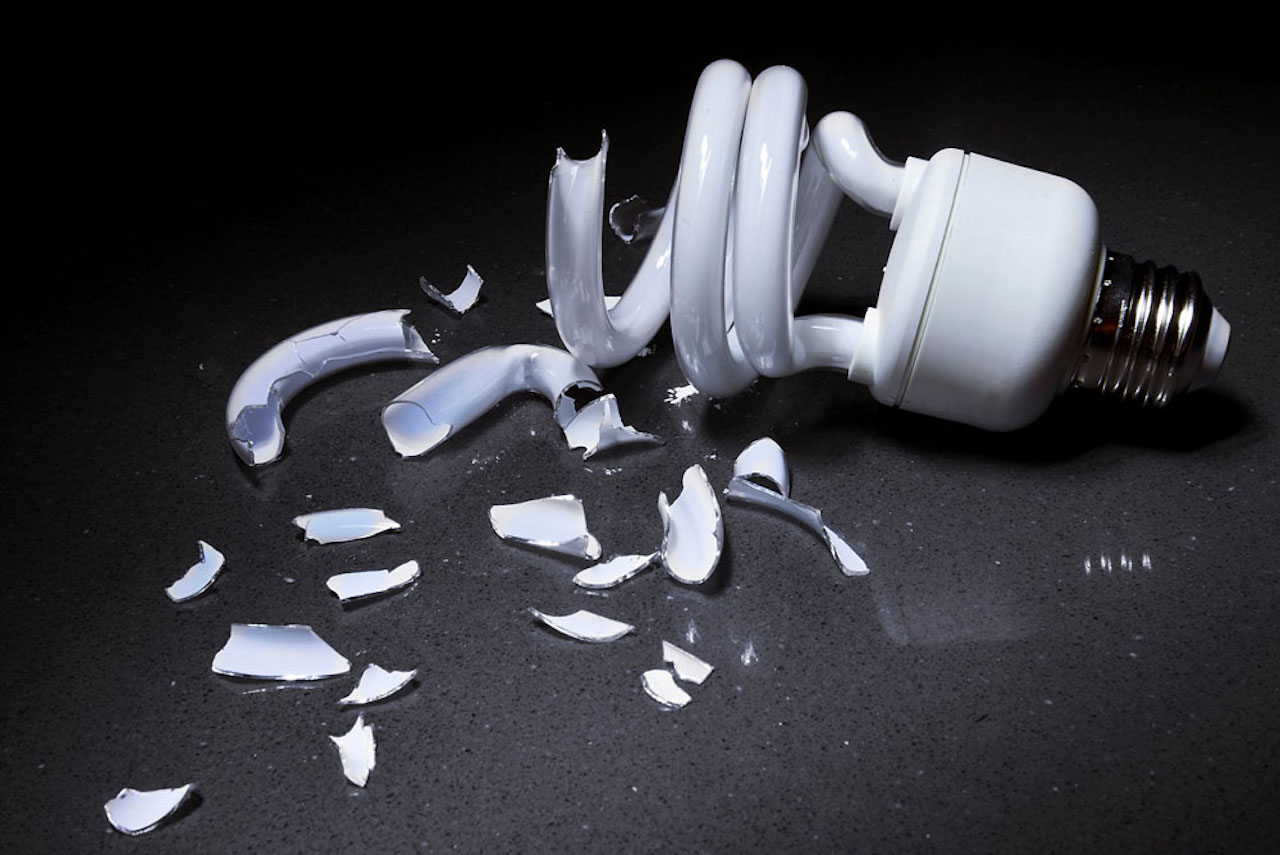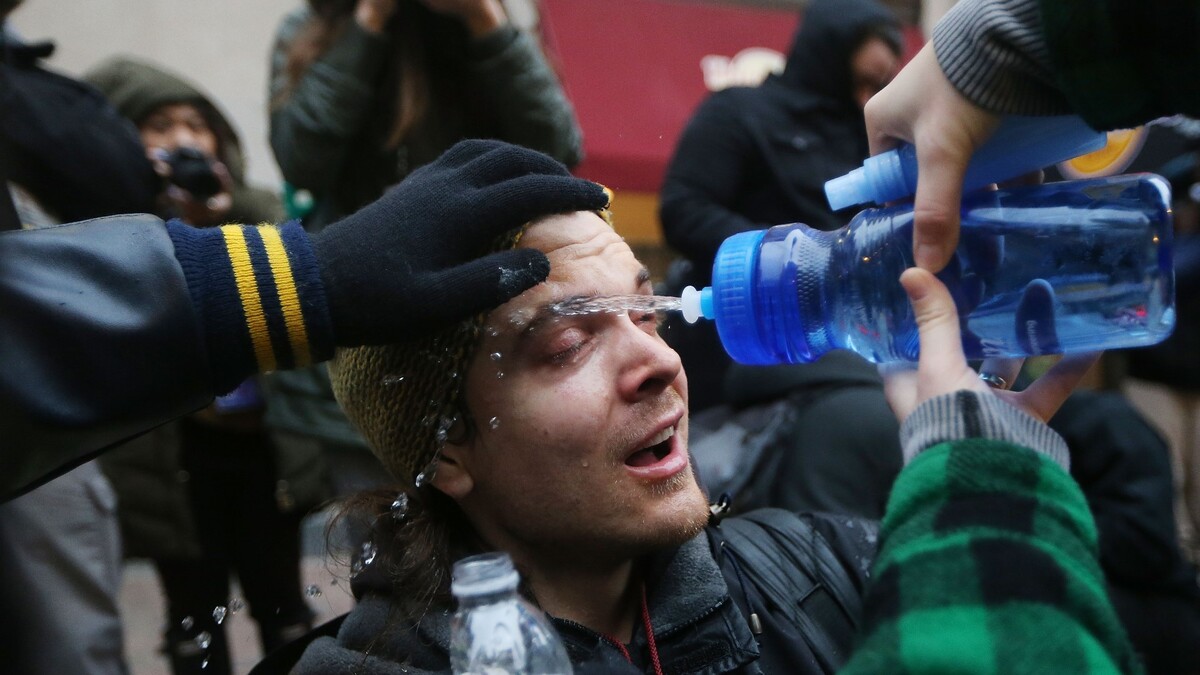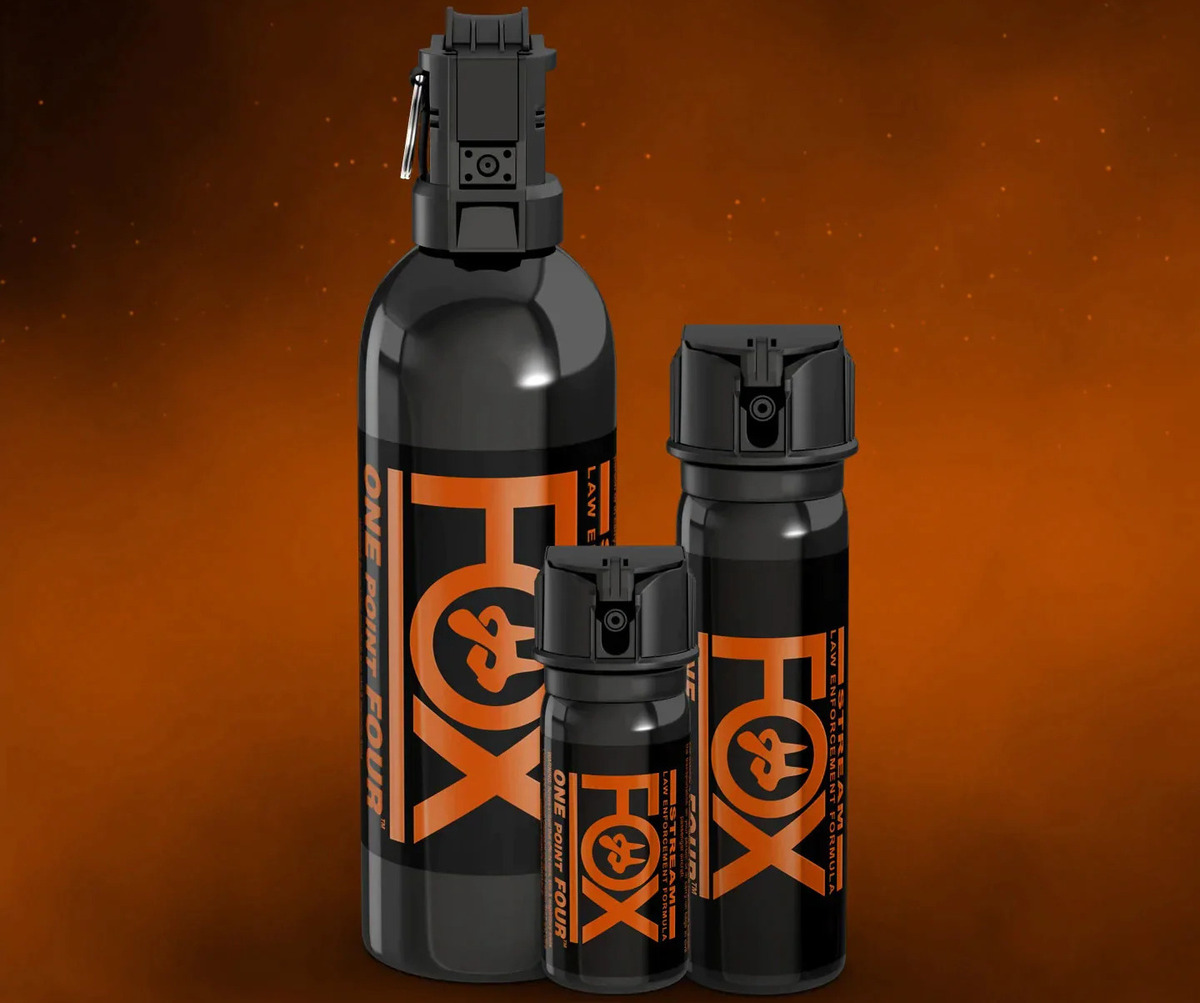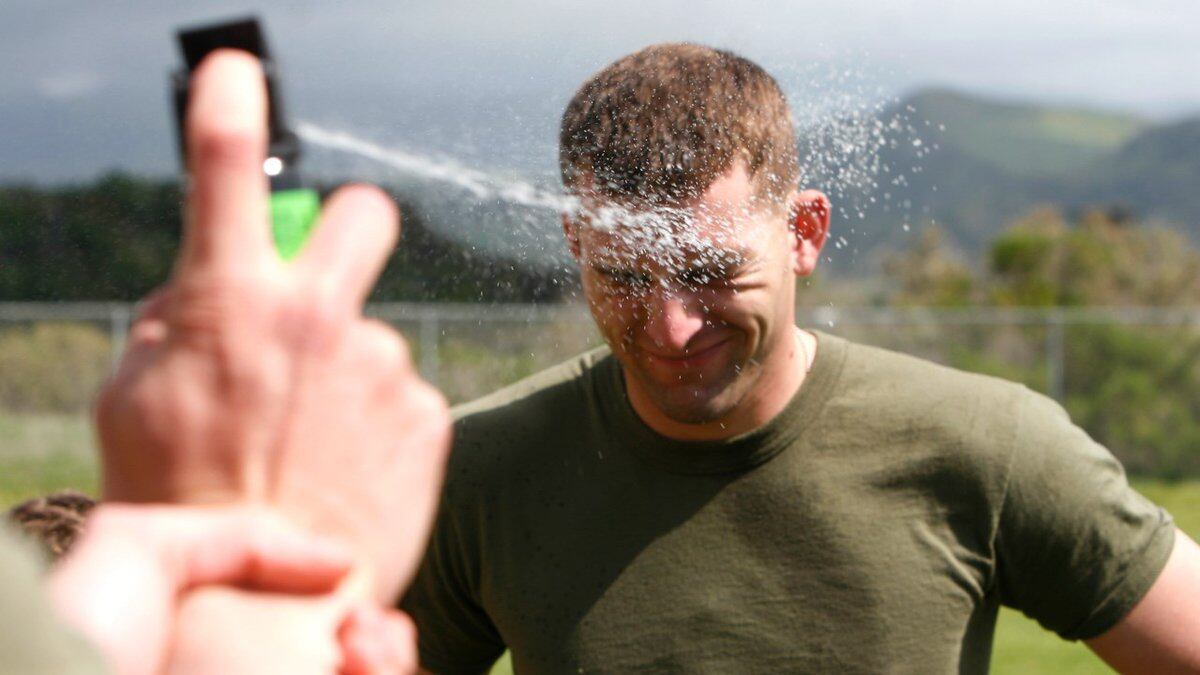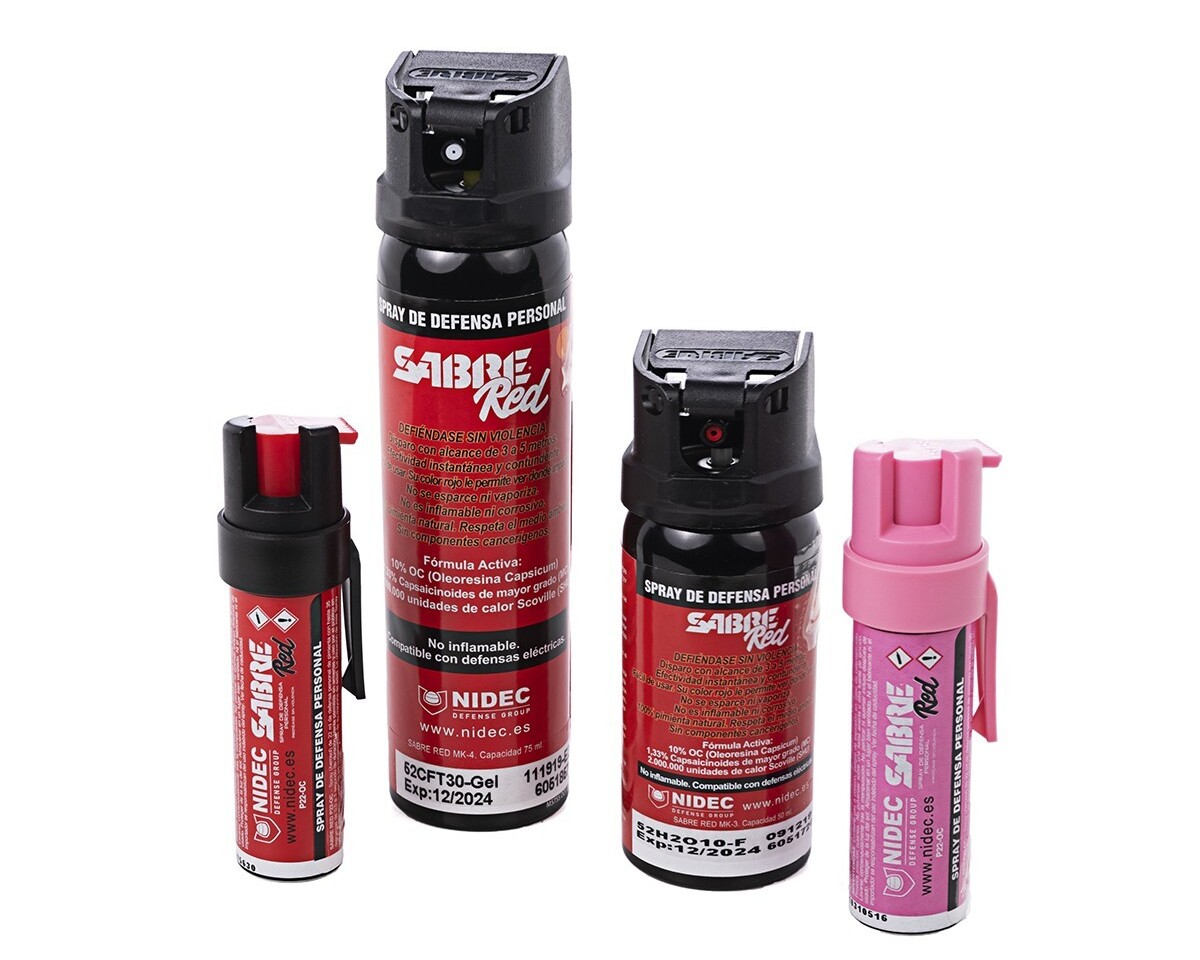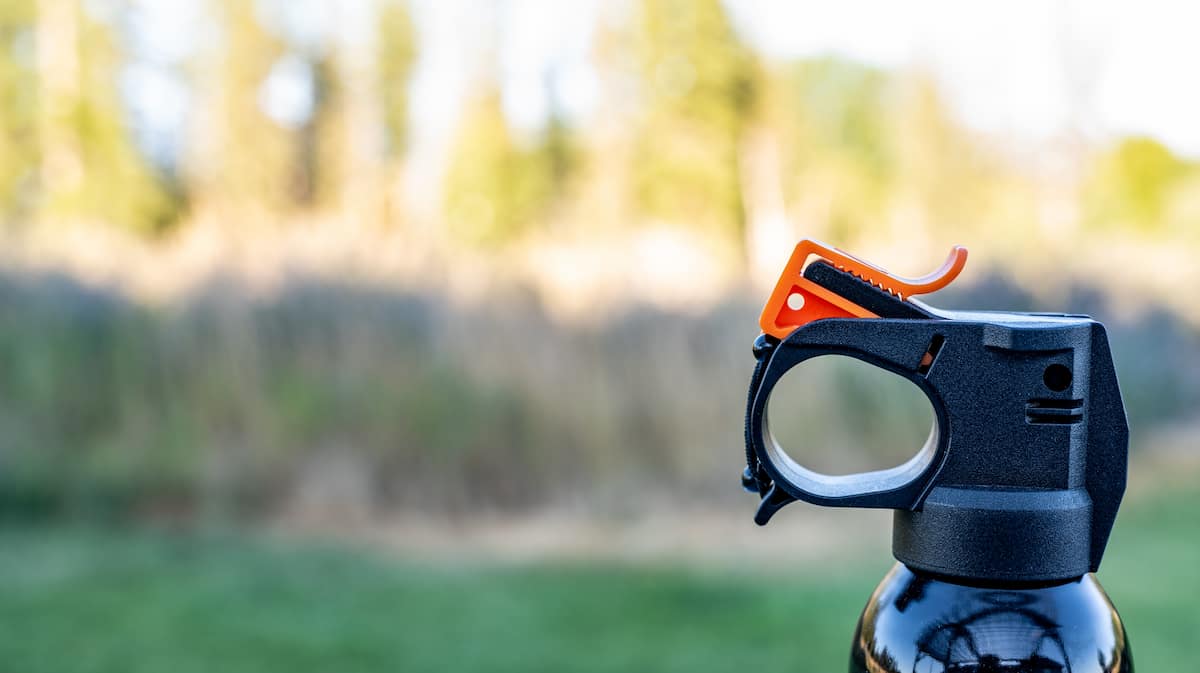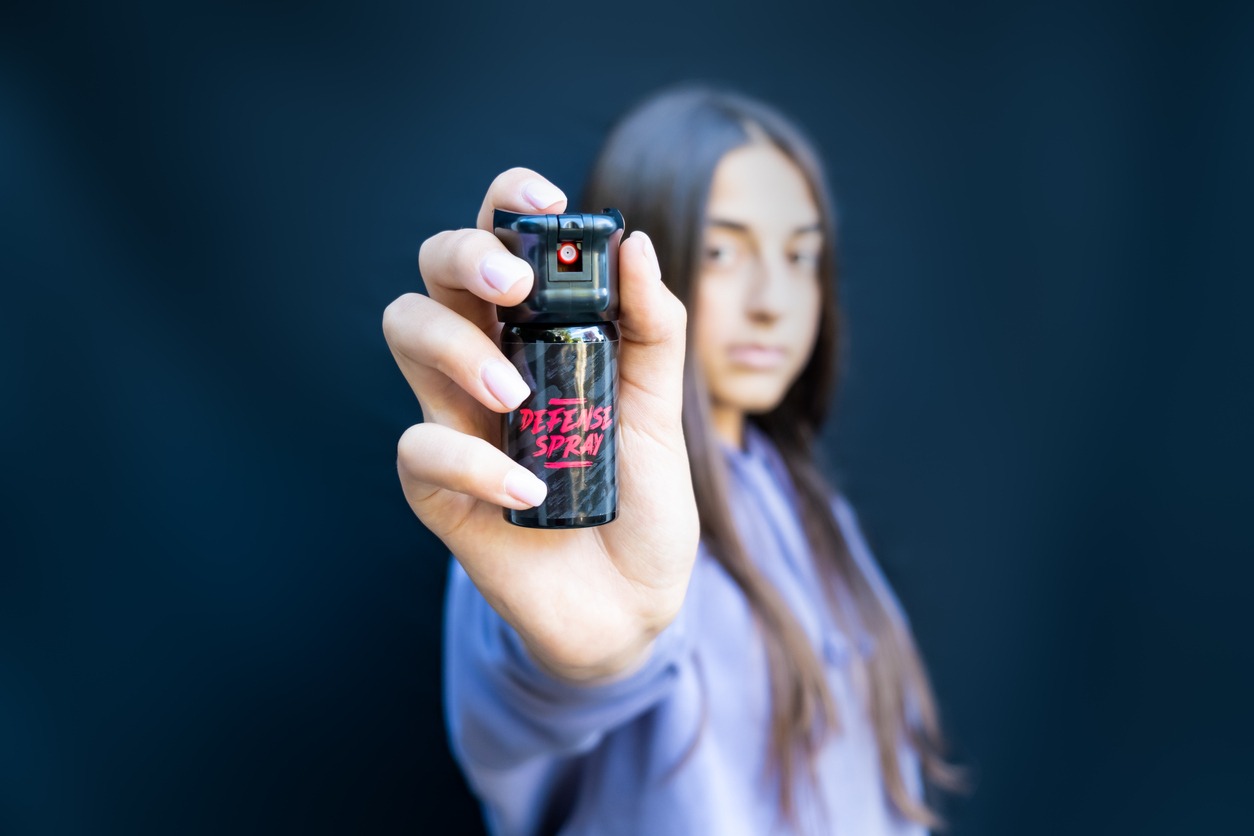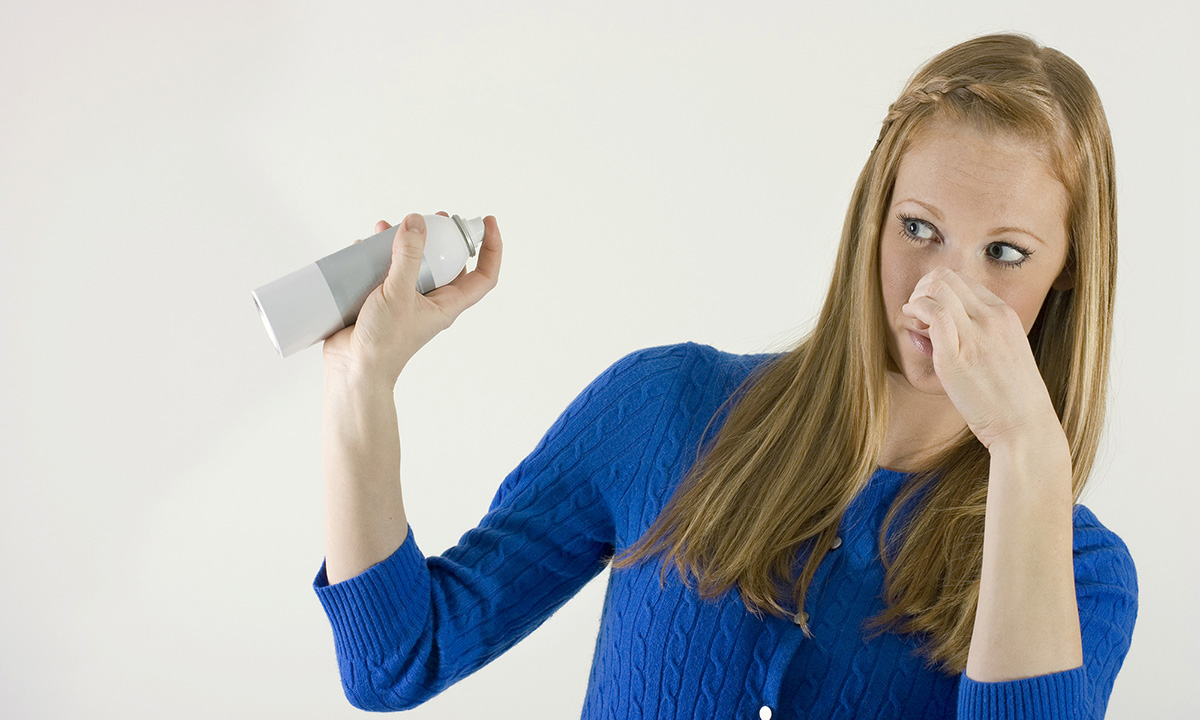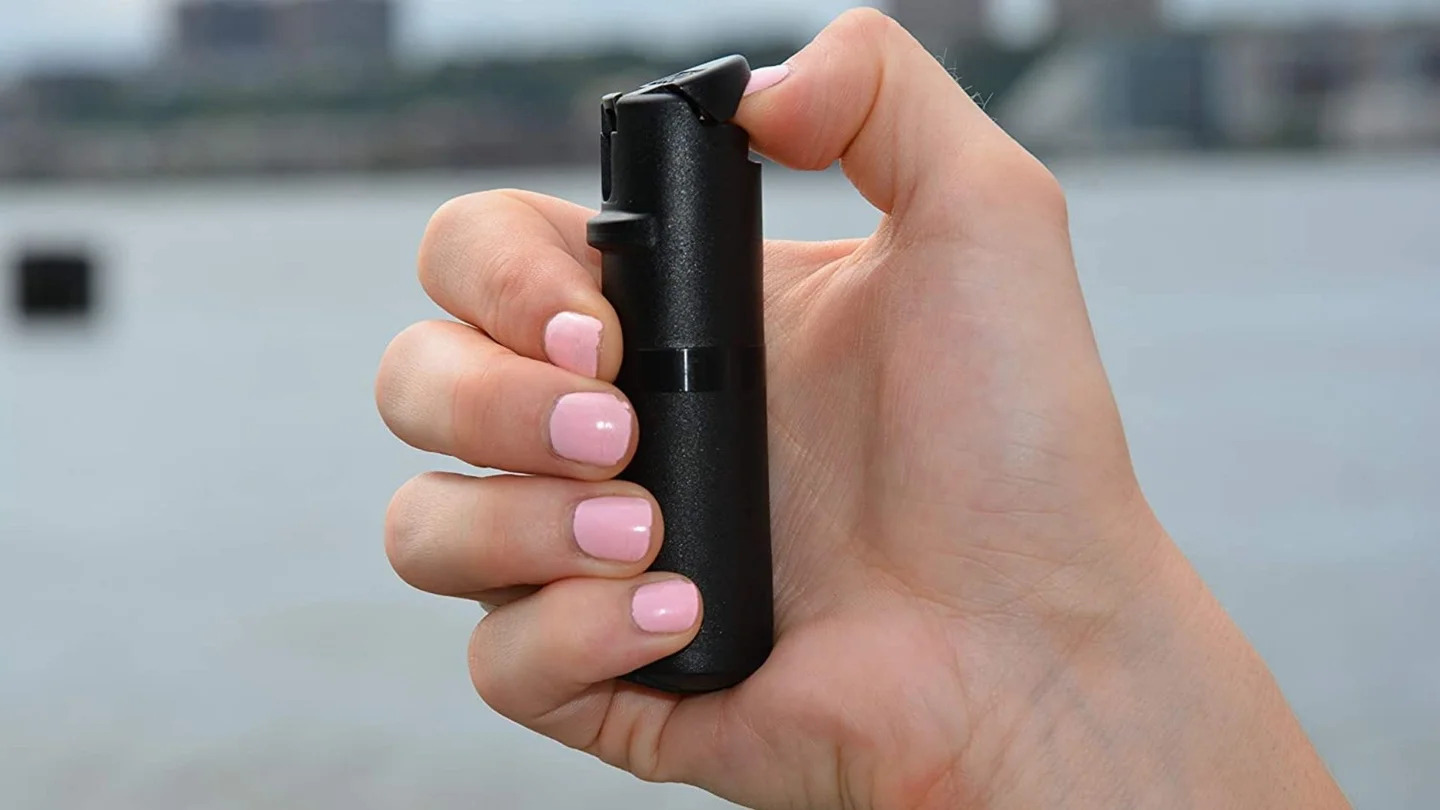Home>Home Security and Surveillance>What Happens If You Inhale Pepper Spray
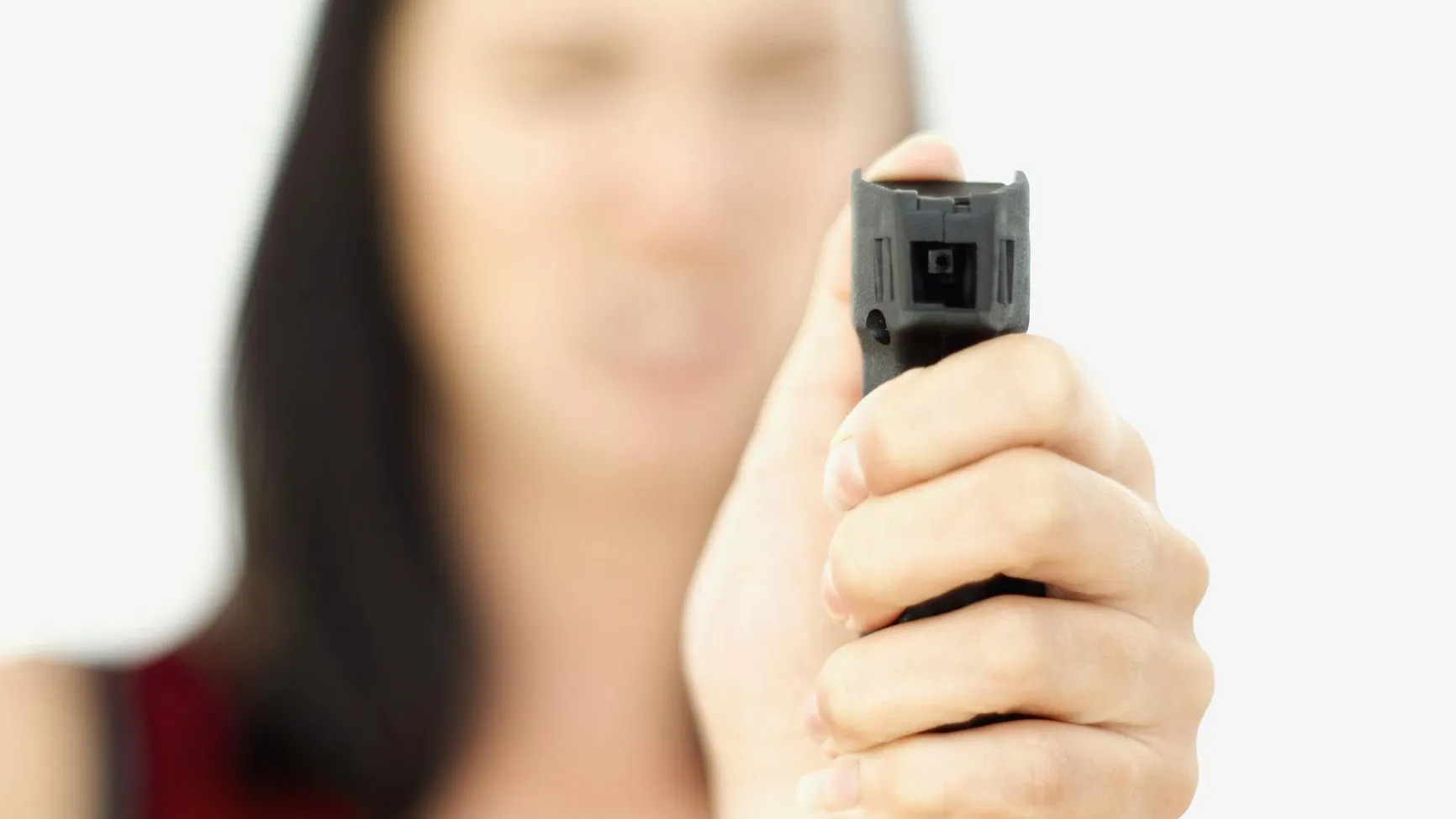

Home Security and Surveillance
What Happens If You Inhale Pepper Spray
Modified: March 6, 2024
Discover the effects of inhaling pepper spray and its impact on your respiratory system. Enhance your home security and surveillance with important insights.
(Many of the links in this article redirect to a specific reviewed product. Your purchase of these products through affiliate links helps to generate commission for Storables.com, at no extra cost. Learn more)
Introduction
Welcome to our comprehensive guide that explores the intriguing topic of inhaling pepper spray. Pepper spray, also known as OC spray (oleoresin capsicum), has become a popular self-defense tool due to its effectiveness in immobilizing attackers. While it is primarily used for personal protection, there are instances where individuals may accidentally inhale or be exposed to pepper spray. In this article, we will delve into the details of what happens when you inhale pepper spray, the immediate symptoms you may experience, potential long-term effects, and essential precautions to keep in mind.
Pepper spray is a potent aerosol spray that contains a derivative of cayenne pepper, known as capsaicin. When deployed, it causes immediate and intense irritation to the eyes, nose, throat, and respiratory system of the target. The purpose of pepper spray is to temporarily incapacitate an attacker, allowing the potential victim to escape or seek help.
Although pepper spray is designed to be used on others, there are situations where accidental exposure can occur. These scenarios may include improperly aimed sprays, windy conditions leading to spray dispersion, or even accidental discharge while handling the canister. No matter the circumstances, unintentionally inhaling pepper spray can have significant effects on the individual.
Understanding the mechanisms of pepper spray and its potential health implications is crucial, as it enables us to take appropriate precautions and address any potential complications. In the following sections, we will examine the workings of pepper spray, the potential effects of inhaling it, how to minimize the risks, and the appropriate steps to take if exposure does occur.
Key Takeaways:
- Inhaling pepper spray can cause immediate symptoms like burning, tearing, and difficulty breathing. Long-term effects may include respiratory problems and eye damage. It’s important to seek medical attention if symptoms persist.
- To minimize the risks of pepper spray, know the laws, learn proper use, and store it securely. If accidentally exposed, move to fresh air, rinse the eyes, and seek medical attention if needed.
Read more: What Happens If You Pepper Spray A Raccoon
What is Pepper Spray?
Pepper spray is a non-lethal aerosol spray that contains a chemical irritant derived from capsicum, the active compound found in chili peppers. It is a popular self-defense tool that is commonly used by law enforcement personnel, security personnel, and individuals concerned about personal safety.
The main active ingredient in pepper spray is capsaicin, a powerful irritant that causes temporary blindness, intense burning pain, and difficulty breathing when it comes into contact with the eyes, nose, throat, and skin. This chemical is extracted from chili peppers and formulated into a spray using a combination of propellants and solvents.
Pepper spray is available in various forms, including handheld canisters, keychain sprays, and even pepper spray guns. The canister typically contains a pressurized solution that can be discharged in bursts or streams, allowing the user to aim at an assailant’s face or body to incapacitate them temporarily.
It’s important to note that there are different types of pepper spray, each with varying levels of potency and heat units. The Scoville Heat Units (SHU) is a measurement scale used to determine the strength of pepper spray, with higher numbers indicating a more potent formula. Pepper sprays with SHU ratings ranging from 500,000 to 5,300,000 are commonly available in the market.
Pepper spray is legal for personal use in many countries, including the United States, Canada, and various European nations. However, it is crucial to check the specific laws and regulations in your jurisdiction before purchasing or carrying pepper spray.
As an effective self-defense tool, pepper spray provides individuals with a means to protect themselves when confronted with potentially threatening situations. Its ease of use, portability, and non-lethal nature make it a popular choice for those seeking personal security.
How Does Pepper Spray Work?
Pepper spray is designed to incapacitate an attacker temporarily by directly affecting their sensory system. When sprayed onto the face or body, the active ingredient, capsaicin, immediately triggers several physiological responses.
Upon contact, capsaicin causes an intense burning sensation, severe pain, and inflammation. It primarily targets the mucous membranes, such as the eyes, nose, throat, and respiratory system. The effects are almost instantaneous, and the individual’s ability to see, breathe, and function normally is significantly impaired.
When the spray comes into contact with the eyes, it causes intense tearing, pain, and temporary vision impairment. This debilitating effect is the result of capsaicin molecules binding to the receptors on the surface of the eye, triggering a response from the nervous system.
In addition to eye irritation, inhaling or coming into contact with pepper spray can cause significant respiratory distress. The capsaicin irritates the airways, leading to coughing, difficulty breathing, and a feeling of suffocation. This response is due to the activation of the body’s respiratory defense mechanisms in an attempt to flush out the irritant.
The burning sensation and inflammation caused by pepper spray create a strong incentive for the attacker to disengage from the victim, offering an opportunity for escape or seeking help.
It’s important to note that the effects of pepper spray are temporary and typically last for about 30 minutes to an hour. The exact duration may vary depending on the concentration and delivery method of the spray, as well as the individual’s sensitivity to capsaicin.
While pepper spray is an effective self-defense tool, it is crucial to use it responsibly and according to local laws. Misuse or excessive use of pepper spray can lead to legal consequences and potential harm to both the attacker and the user.
In the following sections, we will explore the potential effects of inhaling pepper spray, both immediately and in the long term, as well as the precautions to take and the appropriate steps to mitigate any potential risks.
Potential Effects of Inhaling Pepper Spray
Inhaling pepper spray can have a range of immediate effects on the body, as well as potential long-term effects. Understanding these consequences is essential for both individuals who may unintentionally come into contact with pepper spray and those considering its use for self-defense.
Immediate Symptoms:
- Burning and Irritation: When pepper spray is inhaled, it triggers a strong burning sensation in the nose, throat, and respiratory system. This intense irritation can lead to coughing, gagging, and difficulty breathing.
- Tearing and Redness: The eyes are particularly sensitive to pepper spray, causing excessive tearing, redness, and blurred vision. These symptoms can lead to temporary vision impairment.
- Nasal Congestion: Inhaling pepper spray can result in nasal congestion and a runny nose, further exacerbating breathing difficulties.
- Disorientation and Panic: The intense pain and discomfort from inhaling pepper spray can cause disorientation, confusion, and panic.
- Nausea and Vomiting: Some individuals may experience nausea and even vomiting as a result of inhaling pepper spray.
Long-term Effects:
While the immediate symptoms of inhaling pepper spray typically subside within a short period, there can be potential long-term effects for certain individuals.
- Respiratory Problems: Prolonged exposure or repeated inhalation of pepper spray can cause respiratory issues, such as persistent coughing, shortness of breath, and lung irritation.
- Eye Damage: Although rare, there have been cases of prolonged eye irritation, corneal damage, and even temporary or permanent vision impairment due to extensive exposure to pepper spray.
- Allergic Reactions: Some individuals may have allergic reactions to capsaicin, the active ingredient in pepper spray. These reactions can range from mild skin irritation to severe allergic responses.
- Psychological Effects: The traumatic experience of being exposed to pepper spray and its associated pain and distress can result in psychological effects, such as anxiety, fear, and post-traumatic stress disorder (PTSD).
It is important to note that the severity and duration of the effects can vary depending on factors such as the concentration of the spray, the duration of exposure, and an individual’s sensitivity to capsaicin.
Immediate Symptoms
When pepper spray is inhaled, it can result in a range of immediate symptoms that can be distressing and debilitating. These symptoms primarily affect the eyes, nose, throat, and respiratory system. Here are the most common immediate symptoms of inhaling pepper spray:
- Burning and Irritation: One of the most noticeable and intense effects of inhaling pepper spray is the immediate burning and irritation it causes. The capsaicin in the spray triggers a strong sensation of heat and pain in the nose, throat, and respiratory passages. This can lead to coughing, gagging, and a feeling of extreme discomfort.
- Tearing and Redness: Pepper spray irritates the eyes, causing excessive tearing and redness. This effect is intended to impair the assailant’s vision, but when inhaled accidentally, it can lead to temporary vision impairment for the individual. The eyes may become swollen and bloodshot, making it difficult to see clearly.
- Nasal Congestion: Inhaling pepper spray can result in nasal congestion, causing the individual’s nose to feel blocked or stuffy. This can make it challenging to breathe, as well as contribute to a sense of discomfort and distress.
- Disorientation and Panic: The intense pain and discomfort caused by inhaling pepper spray can lead to disorientation, confusion, and panic. The individual may feel a sense of fear and may not be able to think clearly or make rational decisions in the moment.
- Nausea and Vomiting: Some individuals may experience nausea and even vomiting as a reaction to inhaling pepper spray. This is not a commonly reported symptom, but it can occur in more sensitive individuals or in cases where the exposure to the spray is particularly intense.
- Difficulty Breathing: Inhaling the fine particles of pepper spray can result in respiratory distress. The airways can become inflamed, causing coughing, wheezing, and a feeling of suffocation. Breathing may become labored, making it challenging to take in enough air.
If you accidentally inhale pepper spray, it is crucial to seek fresh air and get to a well-ventilated area as soon as possible. Blinking rapidly can help flush the irritants out of your eyes, and using a saline solution or clean water to rinse your eyes can provide relief. It is important to avoid rubbing your eyes, as this can spread the irritants and further aggravate the symptoms.
While the immediate symptoms from inhaling pepper spray can be uncomfortable and distressing, it’s important to remember that they are generally temporary and will subside with time. If the symptoms persist or worsen, seeking medical attention is recommended.
If you accidentally inhale pepper spray, move to fresh air immediately and try to breathe slowly. Do not rub your eyes or face, as this can spread the spray. Rinse your eyes and face with cool water.
Read more: What Happens If You Eat Pepper Spray
Long-term Effects
While the immediate effects of inhaling pepper spray typically subside within a short period of time, there can be potential long-term effects for certain individuals. It’s important to understand these potential consequences to ensure appropriate care and monitoring after exposure. Here are some of the long-term effects that can occur:
- Respiratory Problems: Prolonged exposure or repeated inhalation of pepper spray can cause respiratory issues. The intense irritation and inflammation of the airways can lead to persistent coughing, wheezing, and difficulty breathing. Individuals with pre-existing respiratory conditions, such as asthma or chronic bronchitis, may be more susceptible to these long-term respiratory problems.
- Eye Damage: While it is rare, there have been reported cases of eye damage resulting from excessive exposure to pepper spray. Corneal abrasion, temporary or permanent vision impairment, and other eye-related complications can occur in severe cases. It is important to seek medical attention if you experience persistent eye problems after exposure to pepper spray.
- Allergic Reactions: Some individuals may have allergic reactions to capsaicin, the active ingredient in pepper spray. These reactions can range from mild skin irritation to more severe allergic responses, such as hives, swelling, or difficulty breathing. If you have a known allergy to chili peppers or a history of allergic reactions, it is essential to exercise caution when dealing with pepper spray and seek medical advice if necessary.
- Psychological Effects: The traumatic experience of being exposed to pepper spray and its associated pain and distress can have psychological effects. Some individuals may experience heightened levels of anxiety, fear, or post-traumatic stress disorder (PTSD) following the incident. It is important to address any psychological impact through appropriate support or counseling if needed.
- Sensitivity Reactions: After being exposed to pepper spray, some individuals may develop increased sensitivity to capsaicin or other irritants. This heightened sensitivity can lead to stronger or more prolonged reactions upon subsequent exposure, making them more susceptible to the effects of pepper spray in the future.
It is worth noting that the severity and duration of long-term effects can vary significantly from person to person. Factors such as the concentration of the pepper spray, the duration and intensity of exposure, and individual sensitivity all play a role in determining the potential long-term effects. If you experience any persistent or concerning symptoms after inhaling pepper spray, it is recommended to consult with a healthcare professional for proper evaluation and guidance.
Preventing long-term effects starts with taking measures to minimize exposure to pepper spray. Understanding how to handle and deploy the spray safely, as well as considering alternatives for personal self-defense, can help reduce the risk of potential long-term complications.
Precautions and Safety Measures
When it comes to pepper spray, it’s crucial to prioritize safety and responsible use. Whether you are considering purchasing pepper spray for personal protection or want to ensure you handle it correctly, here are some precautions and safety measures to keep in mind:
- Know the Laws: Familiarize yourself with the laws and regulations regarding the possession, use, and transportation of pepper spray in your jurisdiction. Laws can vary from one location to another, so make sure you are compliant with the legal requirements.
- Learn Proper Use: Before relying on pepper spray for self-defense, educate yourself on the proper use and deployment techniques. Take a self-defense class or seek guidance from a professional instructor who can teach you how to handle and use pepper spray effectively.
- Choose the Right Spray: Select a pepper spray that suits your needs and comfort level. Consider the spray pattern, range, and potency, as well as any additional features that may enhance your safety, such as UV marking dye or a safety lock mechanism.
- Practice with Inert Spray: If possible, practice using an inert spray or a dummy canister to familiarize yourself with the handling and spraying techniques. This can help you gain confidence and ensure proper deployment when faced with an actual situation.
- Store Properly: Store your pepper spray in a secure and easily accessible location, away from children and pets. Make sure it is kept in a cool, dry place, and check the expiration date regularly to ensure its effectiveness.
- Consider Wind and Environment: Be mindful of wind direction when using or deploying pepper spray. If used in windy conditions, it can potentially blow back towards you or innocent bystanders. Position yourself so that the wind is at your back or take other precautions to minimize the risk of unintended exposure.
- Use Minimal Force: Only use pepper spray in situations where there is a genuine and immediate threat to your safety or the safety of others. Use the spray as a last resort and with minimal force necessary to neutralize the threat or create an opportunity to escape.
- Practice Self-control: Pepper spray should never be used for playful or malicious purposes. It is a self-defense tool intended to protect you in dangerous situations. Use it responsibly and exercise self-control to avoid unnecessary harm to yourself or others.
By following these precautions and safety measures, you can minimize the risks associated with pepper spray and ensure that you are prepared to use it effectively if the need arises. Remember, pepper spray is a tool for personal protection, and responsible use is essential to ensure the safety of everyone involved.
Treatment for Pepper Spray Inhalation
If you or someone around you has accidentally inhaled pepper spray, it’s important to know how to provide immediate care and seek appropriate treatment. While the effects of pepper spray inhalation are generally temporary, taking the following steps can help alleviate discomfort and promote recovery:
- Move to Fresh Air: Immediately move away from the area where pepper spray was released to breathe in fresh air. If indoors, seek an area with good ventilation or open windows to allow fresh air circulation.
- Blink Repeatedly: Blink rapidly to encourage tear production, which can help flush out any residual pepper spray particles that may be present in the eyes.
- Rinse Eyes: Rinse the eyes with clean water or a saline solution to help dilute and flush out the pepper spray residue. Tilt your head back slightly and pour the water or saline over the affected eyes, keeping them open as you do so. Avoid rubbing your eyes, as it can spread the irritants further.
- Remove Contact Lenses: If you wear contact lenses, remove them carefully to prevent any pepper spray residue from adhering to the lenses. You can then rinse them thoroughly before reinserting them, following proper hygiene practices.
- Do Not Rub: Avoid rubbing the affected areas, including the eyes and face, as it can worsen the irritation and spread the irritants to other parts of the body.
- Wash Exposed Skin: If pepper spray has come into contact with your skin, gently wash the affected areas with mild soap and water. Avoid using harsh chemicals or abrasive substances that may further irritate the skin.
- Apply Soothing Agents: After rinsing the eyes and washing the skin, you can apply cool compresses, aloe vera gel, or a mild hydrocortisone cream to help soothe the affected areas and reduce inflammation.
- Seek Medical Attention: If symptoms persist or worsen, or if you have pre-existing respiratory issues, it is important to seek medical attention. A healthcare professional can assess the situation, provide appropriate treatment, and offer guidance on managing any potential complications.
- Follow Up: Even if symptoms improve, it is advisable to follow up with a healthcare professional, especially if you have concerns about any long-term effects or complications.
Remember, while these steps can provide immediate relief, they are not a substitute for professional medical advice. If there is any uncertainty or if symptoms are severe, contact a healthcare professional for guidance.
Pepper spray inhalation, although distressing, is typically a temporary condition, and most individuals recover fully with proper care and time. By being prepared and knowing how to respond, you can effectively manage the situation and support a speedy recovery.
Conclusion
Pepper spray is a powerful self-defense tool that can immobilize attackers temporarily. However, accidental exposure or inhalation of pepper spray can have significant effects on individuals. In this comprehensive guide, we have explored what happens when you inhale pepper spray, the immediate symptoms you may experience, potential long-term effects, and important precautions to keep in mind.
Pepper spray works by triggering intense irritation and pain in the eyes, nose, throat, and respiratory system. Immediate symptoms include burning, tearing, nasal congestion, disorientation, and difficulty breathing. While these effects are generally temporary, long-term complications such as respiratory problems, eye damage, and allergic reactions may occur in some individuals.
To minimize the risks associated with pepper spray, it is important to take precautions and follow safety measures. Familiarize yourself with local laws, learn proper use and handling techniques, choose the right spray for your needs, and store it securely. Additionally, consider wind direction and use minimal force when deploying pepper spray.
If you or someone else accidentally inhales pepper spray, move to fresh air immediately, blink rapidly, and rinse the eyes with clean water or a saline solution. Avoid rubbing the eyes or skin, and seek medical attention if symptoms persist or worsen. Following these steps will help alleviate discomfort and promote recovery.
Remember, responsible use of pepper spray is paramount. It should only be used in situations where there is a genuine threat to personal safety. Misuse or excessive use of pepper spray can have legal consequences and cause harm to both the attacker and the user.
By understanding the potential effects of inhaling pepper spray and taking necessary precautions, you can effectively protect yourself and make informed decisions regarding personal safety. Stay safe, be prepared, and choose self-defense methods that align with your comfort level and legal obligations.
Frequently Asked Questions about What Happens If You Inhale Pepper Spray
Was this page helpful?
At Storables.com, we guarantee accurate and reliable information. Our content, validated by Expert Board Contributors, is crafted following stringent Editorial Policies. We're committed to providing you with well-researched, expert-backed insights for all your informational needs.


